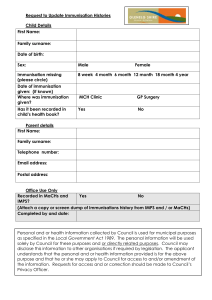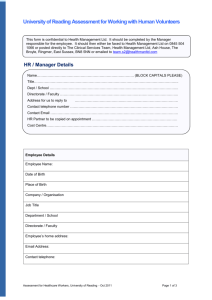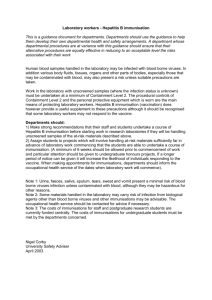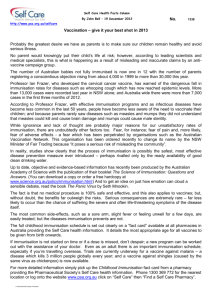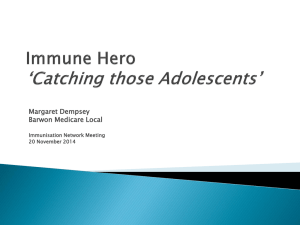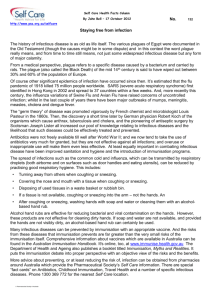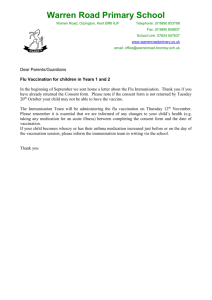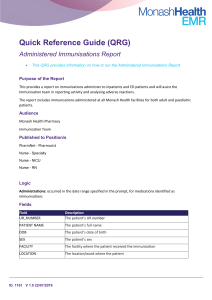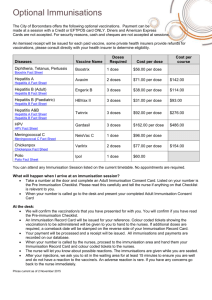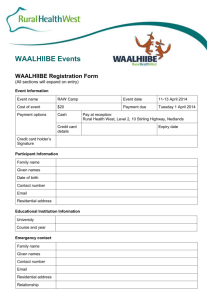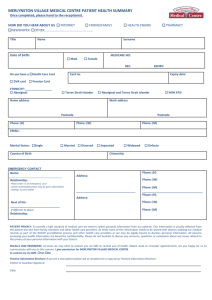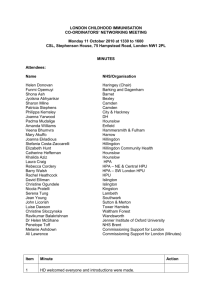immunisations
advertisement
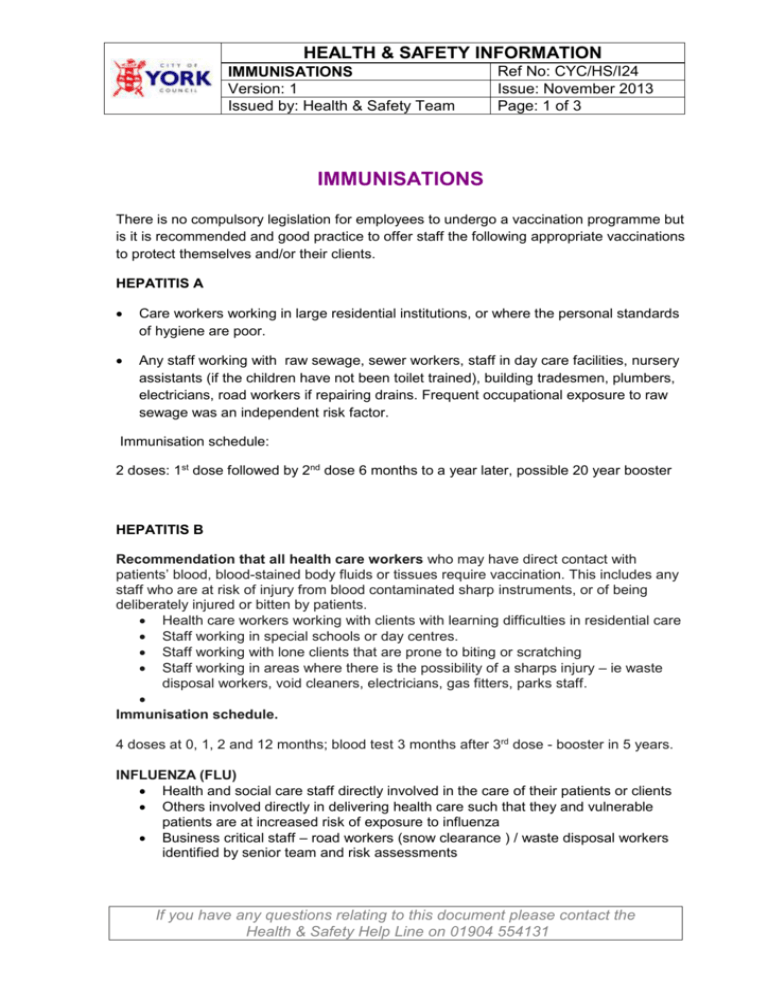
HEALTH & SAFETY INFORMATION IMMUNISATIONS Version: 1 Issued by: Health & Safety Team Ref No: CYC/HS/I24 Issue: November 2013 Page: 1 of 3 IMMUNISATIONS There is no compulsory legislation for employees to undergo a vaccination programme but is it is recommended and good practice to offer staff the following appropriate vaccinations to protect themselves and/or their clients. HEPATITIS A Care workers working in large residential institutions, or where the personal standards of hygiene are poor. Any staff working with raw sewage, sewer workers, staff in day care facilities, nursery assistants (if the children have not been toilet trained), building tradesmen, plumbers, electricians, road workers if repairing drains. Frequent occupational exposure to raw sewage was an independent risk factor. Immunisation schedule: 2 doses: 1st dose followed by 2nd dose 6 months to a year later, possible 20 year booster HEPATITIS B Recommendation that all health care workers who may have direct contact with patients’ blood, blood-stained body fluids or tissues require vaccination. This includes any staff who are at risk of injury from blood contaminated sharp instruments, or of being deliberately injured or bitten by patients. Health care workers working with clients with learning difficulties in residential care Staff working in special schools or day centres. Staff working with lone clients that are prone to biting or scratching Staff working in areas where there is the possibility of a sharps injury – ie waste disposal workers, void cleaners, electricians, gas fitters, parks staff. Immunisation schedule. 4 doses at 0, 1, 2 and 12 months; blood test 3 months after 3rd dose - booster in 5 years. INFLUENZA (FLU) Health and social care staff directly involved in the care of their patients or clients Others involved directly in delivering health care such that they and vulnerable patients are at increased risk of exposure to influenza Business critical staff – road workers (snow clearance ) / waste disposal workers identified by senior team and risk assessments If you have any questions relating to this document please contact the Health & Safety Help Line on 01904 554131 HEALTH & SAFETY INFORMATION IMMUNISATIONS Version: 1 Issued by: Health & Safety Team Ref No: CYC/HS/I24 Issue: November 2013 Page: 2 of 3 Immunisation schedule Annual injection between October – March MEASLES, MUMPS & RUBELLA (MMR) Healthcare workers Protection of healthcare workers is especially important in the context of their ability to transmit measles or rubella infections to vulnerable groups ie pregnant women. While they may need MMR vaccination for their own benefit they also should be immune to measles and rubella for the protection of their patients. Satisfactory evidence of protection would include documentation of: ● Having received two doses of MMR, or ● Positive antibody tests for measles and rubella. Immunisation schedule Immunisation required if employee is not able to provide evidence then two doses given one month from each other. No blood test required. RABIES Pre-exposure (prophylactic) immunisation Local authority dog wardens who are also inspectors would require the vaccine. Other dog wardens have a low risk of exposure, and post-exposure prophylaxis in the event of an incident is appropriate. Employees who regularly handle bats in the UK would also require the vaccine. Immunisation schedule For those at regular and continuous risk, a single reinforcing dose of vaccine should be given one year after the primary course has been completed. Further doses should be given at three- to five-year intervals thereafter. TETANUS Park staff, building tradesmen, care workers, sewer workers, toilet cleaners, voids cleaners and plumbers. For minimum protection five doses of tetanus-containing vaccine at appropriate intervals for all individuals. Most adults have this during their childhood years. Primary immunisation If you have any questions relating to this document please contact the Health & Safety Help Line on 01904 554131 HEALTH & SAFETY INFORMATION IMMUNISATIONS Version: 1 Issued by: Health & Safety Team Ref No: CYC/HS/I24 Issue: November 2013 Page: 3 of 3 Infants and children under ten years TB BCG For employees working in a health care setting. Immunisation schedule If no evidence of a BCG scar, Manitoux test and reading 75 hours later, dependant on reading BCG given VARICELLA Varicella (chickenpox) is an acute, highly infectious disease caused by the varicella zoster (VZ) virus. Employees working in a health care setting who have contact with clients ie social workers care staff, cleaners, admin staff in care homes and schools. Immunisation schedule Normally given in childhood – one off injection, if no verbal written evidence immunisation may be required. For further details please contact the CYC Occupational Health provider. If you have any questions relating to this document please contact the Health & Safety Help Line on 01904 554131
